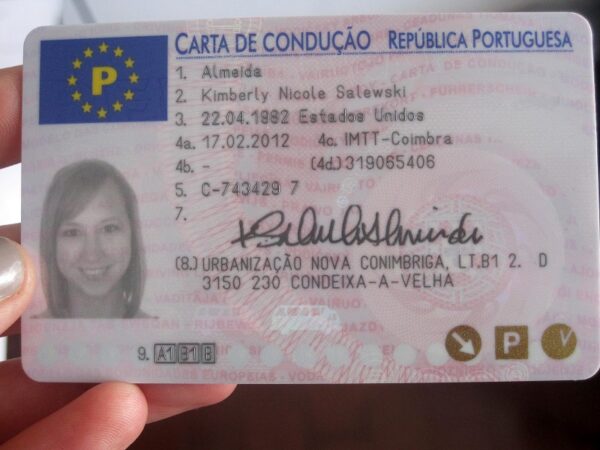Three Greatest Moments In Buy Driving License History

Understanding the Process of Buying a Driving License: An Informative Guide
In today's hectic world, having a driving license is frequently viewed as an essential need. It not only supplies individuals with the freedom to take a trip but also opens up a plethora of opportunities in terms of work. However, the process of obtaining a legitimate driving license can be tiresome, pricey, and time-consuming. As a result, some individuals may think about buying a driving license through illegal means. This short article intends to clarify the subject, detailing the substantial risks connected with buying a driving license, the legal options for acquiring one, and frequently asked questions surrounding this controversial concern.
The Risks of Buying a Driving License
Buying a driving license unlawfully might look like a quick solution, however it includes many dangers and prospective repercussions, consisting of:
Legal Consequences
- Fines and Penalties: If captured, people can face large fines.
- Legal Charges: Fraud and forgery charges might be levied against individuals.
- Rap sheet: A conviction can lead to an irreversible criminal record, affecting future chances.
Safety Concerns
- Unqualified Drivers: Individuals who buy licenses might lack proper training, resulting in unsafe driving circumstances.
- Insurance coverage Issues: Without a legitimate license, access to appropriate insurance coverage ends up being jeopardized, exposing individuals to liabilities.
Ethical Dilemmas
- Trust in the System: Purchasing a license weakens public rely on the legal system.
- Unreasonable Advantage: Individuals who buy licenses seize the day away from those who want to go through the genuine process.
Legal Alternatives for Obtaining a Driving License
Rather than considering illegal alternatives, individuals are encouraged to check out legal courses to obtain a driving license. The list below steps describe a normal process:
Complete the Required Education:
- Understanding traffic laws and policies is necessary.
- Standard lorry operation and road safety education are typically needed.
Make an application for a Learner's Permit:
- Applicants should be of a particular age, typically 15 or 16, depending on the jurisdiction.
- Pass a composed test associated to traffic laws.
Practice Driving:
- Driving under the supervision of a certified grownup is required to get experience.
- The majority of jurisdictions have minimum driving hours required for learner's licenses.
Schedule a Driving Test:
- After satisfying the student's license requirements, schedule a driving test with the regional Department of Motor Vehicles (DMV) or its equivalent.
- Guarantee you have a roadworthy automobile for the test.
Pass the Driving Test:
- This consists of both a practical driving test and perhaps a written exam.
- As soon as passed, you will receive your driving license.
Table 1: Summary of Steps to Obtain a Driving License
| Action | Description | Notes |
|---|---|---|
| Total Required Education | Study traffic laws and driving safety regulations | Online or in-person courses offered |
| Use for a Learner's Permit | Pass a composed test on traffic laws | Age requirement differs |
| Practice Driving | Gain experience with a certified supervisor | Minimum driving hours typically required |
| Schedule a Driving Test | Reserve an appointment with the local DMV | Bring required documents |
| Pass the Driving Test | Complete both useful and written exams | Need to utilize a roadworthy vehicle |
Frequently Asked Questions (FAQs)
1. Is it possible to get a driving license without taking a driving test?
No, in a lot of jurisdictions, passing a driving test is a requirement for acquiring a motorist's license. Some states may provide exemptions under particular situations, but this is rare.
2. What are the effects of driving without a license?
Driving without a license can lead to significant fines, automobile impoundment, and potential arrest. It likewise increases the likelihood of facing problems when obtaining insurance coverage.
3. For how long is a driving license valid?
The validity of a driving license can differ by state or country, however the majority of are valid for 4 to 10 years, after which they must be renewed.
4. What should I do if my driving license is lost or taken?
Instantly report the loss or theft to regional authorities. You should then get a replacement license at your local DMV, supplying appropriate documentation to support your identity.
5. Can I still drive if my driving license is ended?
No, driving with an ended license is unlawful. this hyperlink is suggested to renew your license as quickly as possible to remain compliant with policies.
While the allure of buying a driving license may be appealing for some, the risks far exceed any perceived advantages. Not just does buying a license threaten one's safety and legal standing, but it also undermines the stability of the whole licensing system. Instead, potential chauffeurs must invest time and effort into extensive education, practice, and testing to achieve their driving opportunities legally. Through this devoted technique, people not just comply with the law however likewise become proficient and accountable chauffeurs.

